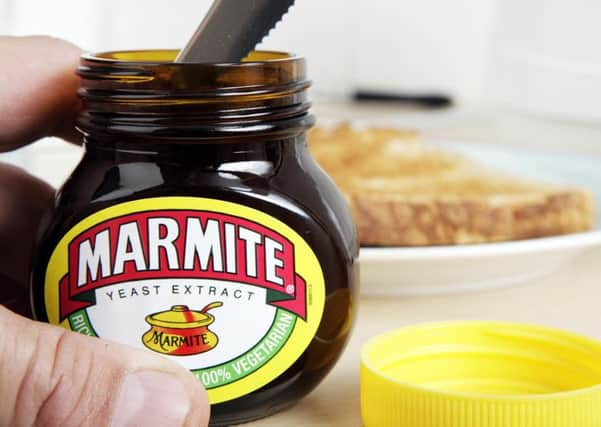Marmite maker overcomes '˜volatile' markets with profit hike
This article contains affiliate links. We may earn a small commission on items purchased through this article, but that does not affect our editorial judgement.


Unilever said pre-tax profits rose 27 per cent to €4.6 billion (£4.1bn) for the first half of the year, up from €3.6bn the year a year earlier. Underlying sales growth came in at 3 per cent over the period, with sales – excluding its spreads business – expanding by 3.4 per cent. The FTSE 100 heavyweight assured investors that it was on track for another year of underlying sales growth ahead of expectations at around 3 per cent to 5 per cent.
• READ MORE: Unilever to focus on investor value after Kraft move
Advertisement
Hide AdAdvertisement
Hide AdChief executive Paul Polman said the market “remained challenging”, but efforts to boost profitability were gathering pace.
He said: “Our first-half results show continued growth well ahead of our markets and a substantial step-up in profitability despite the persisting volatile global trading environment.
“The transformation of Unilever into a more resilient, more competitive and more profitable business is accelerating.”
The group flagged Brazil’s economic troubles as a “significant headwind”, while the rollout of a goods and services tax in India and fewer trading days due to holidays in Indonesia were also dragging on business.
Consumer demand across Europe was “weak”, the company added, with a slowdown in the margarine market across the UK and Germany knocking overall growth.
Unilever, which employs some 169,000 people worldwide, announced in April that it would offload some of its best-known brands – including Flora and Stork – after fending off a takeover attempt from Kraft Heinz. It plans to sell or de-merge its underperforming spreads business, which could yield up to £6bn.
Steve Clayton, fund manager at Hargreaves Lansdown, said: “Volume growth is still hard to come by in today’s world of lacklustre economic growth, but Unilever’s strength in emerging markets is allowing it to push revenues forward through pricing gains.
Advertisement
Hide AdAdvertisement
Hide Ad“Overall, these numbers look to be ahead of where analysts thought the group would be due to strong margin expansion. Three per cent underlying sales growth in the first half should pick up further in the second half as the results of recent acquisitions kick in.
“Meanwhile, after coming under intense pressure following the Kraft Heinz bid approach, Unilever’s redoubled efforts to raise margins are paying off.”
Premier Foods sees sales sour but outlook remains sweet
Premier Foods, whose brands include Ambrosia, Mr Kipling and Oxo, has reported a dip in first-quarter revenues after a combination of warm weather and lacklustre dessert sales dragged on its performance, writes Emma Newlands.
Sales fell 3.1 per cent in the 13 weeks to 1 July, due in part to fewer consumers buying Ambrosia where “changing promotional mechanics resulted in lower-than-expected volumes in the quarter”.
The company added that revenue was adversely impacted by a warmer June and “lower promotional effectiveness” in its desserts division.
The group has recently been stung with surging costs of commodities such as sugar, chocolate, dairy, wheat and palm oil, as well as the collapse in the pound.
However, international sales rocketed by a fifth, with Cadbury cake sales in Australia a major contributor.
• READ MORE: SLI hits out at Mr Kipling owner Premier Foods
In January, the firm warned over profits and said it planned to slash costs throughout its supply chain. It expects to deliver savings of £10 million this financial year.
Advertisement
Hide AdAdvertisement
Hide AdChief executive Gavin Darby said: “We expect to report positive sales growth in the second quarter, broadly flat sales in the first half and our expectations to deliver progress in the full year are unchanged.”
Analysts Clive Black and Darren Shirley at Shore Capital said: “Whilst far from a glowing performance in Q1, we do actually believe that Premier is toughing it out quite effectively.”